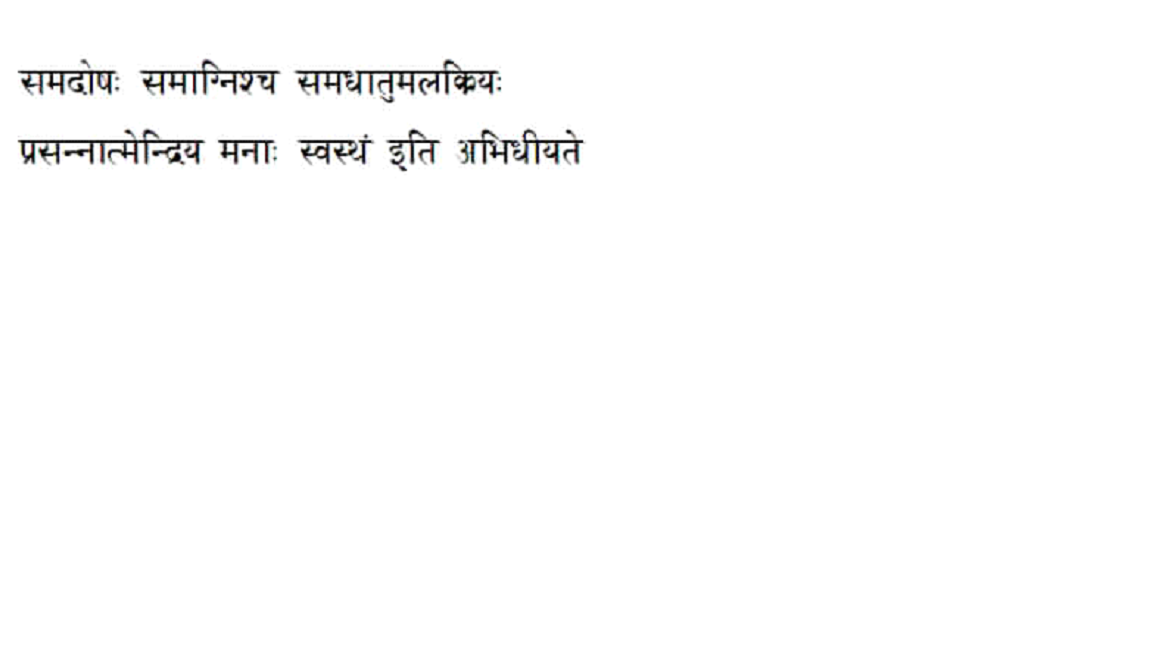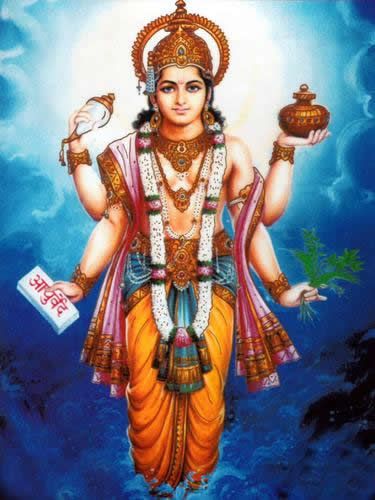

Ayurved - The Science of Life
Ayurveda is an ancient medical tradition from India. The term is derived from the Sanskrit word "Ayur", meaning "life" or "longevity," and "Veda", meaning "knowledge" or "science."
Ayurveda is an ancient science and aims about physical mental and spiritual health. Therefore definition of healthy individual means all three dosha(Vata ,Pitta, Kapha ) should be equal in all forms, all agni (total thirteen agni ) which maintain the metabolism in equally distributed ,all Dhatu (Rasa,Rakta,Mansa,Meda,Asthi ,Majja,Shukra-which forms body ) should be equal distribution, all mala ( Excretory products of body) and all krya (metabolism) are equally distributed.

Actually this is the physical health. Ayurveda thinks beyond physical health. Our body along with mind and soul along with all indrias should be in happy manner, then we can call that individual as healthy.
Ayurveda is for achieving health and maintain that health. If there is imbalance of anything in the mentioned above then disease appear. Ayurveda has its own principles to treat disease.
Ayurveda is very ancient science and actually "Upaveda" of "Atharvaveda". Atharvaveda has various references of ayurveda but other vedas also have some some references of ayurveda. It suggests that ayurveda has its origin before Veda.
"Charaka Samhita", "Ashtanga Hrudaya" and "Sushruta Samhita" are the three most prominent ancient texts on Ayurveda. They elaborate on the five-element system and the importance of balance in a healthy life.
Branches of Ayurveda
